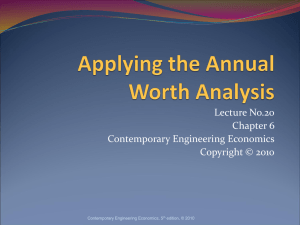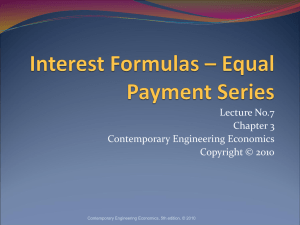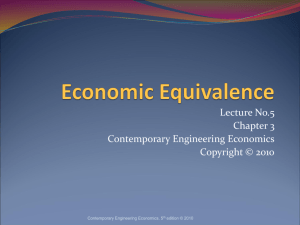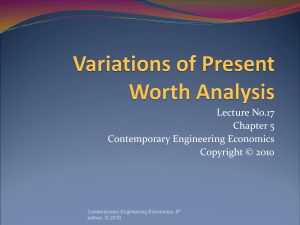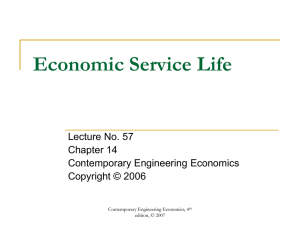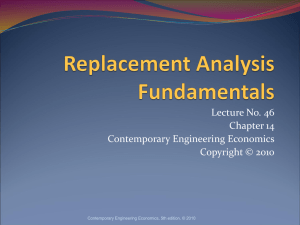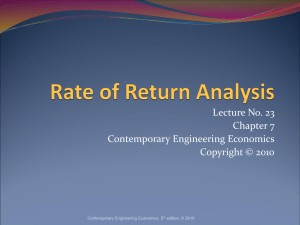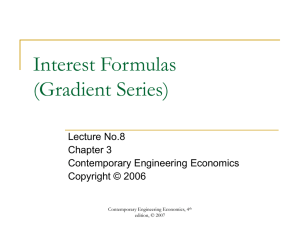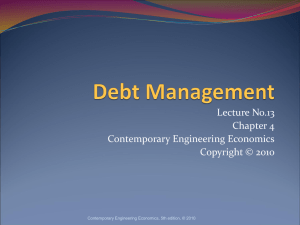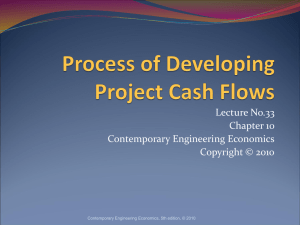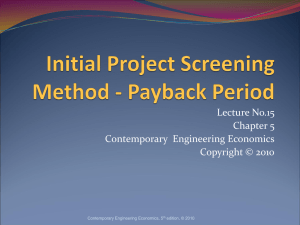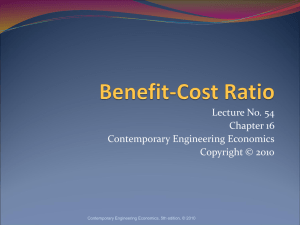Interest Formulas – Gradient Series
advertisement
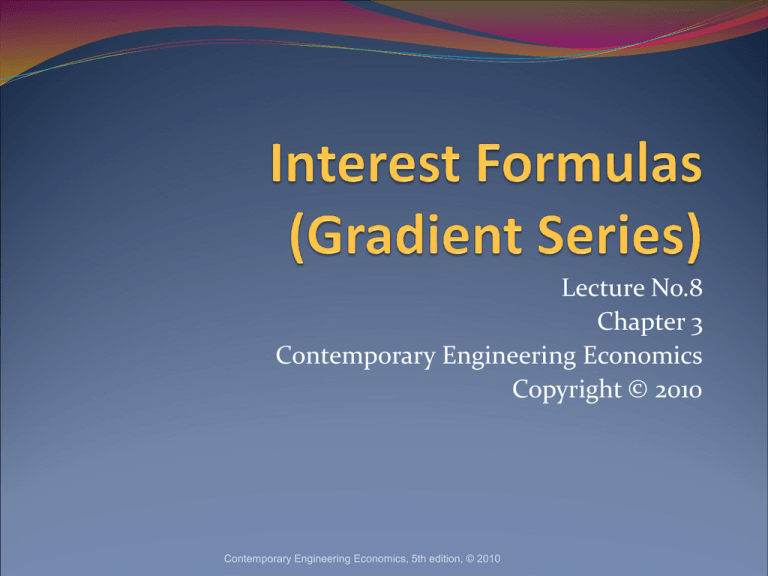
Lecture No.8 Chapter 3 Contemporary Engineering Economics Copyright © 2010 Contemporary Engineering Economics, 5th edition, © 2010 Linear Gradient Series A Strict Gradient Series Gradient Series as a Composite Series of a Uniform Series of N Payments of A1 and the Gradient Series of Increments of Constant Amount G. Contemporary Engineering Economics, 5th edition, © 2010 Example3.21 Linear Gradient: Find P, Given A1, G, N, and i Given: A1 = $1,000, G = $250, N = 5 years, and i = 12% per year Find: P Excel Solution: Contemporary Engineering Economics, 5th edition, © 2010 Gradient-to-Equal-Payment Series Conversion Factor, (A/G, i, N) Cash Flow Series Given: G = $1,000, N = 10 years, i = 12% Find: A Solution: A $1,000(A / G ,12%,10) $1,000(3.5847) Factor Notation $3,584.70 Contemporary Engineering Economics, 5th edition, © 2010 Example 3.22 – Linear Gradient: Find A, Given A1, G, i, and N Given: A1 = $1,000, G = $300, N = 6 years, and i = 10% per year Find: A Contemporary Engineering Economics, 5th edition, © 2010 Example 3.23 Declining Linear Gradient Series Given: A1 = $1,200, G = - $200, N = 5 years, and i = 10% per year Find: F Strategy: Since we have no interest formula to compute the future worth of a linear gradient series directly, we first find the equivalent present worth of the gradient series and then convert this P to its equivalent F. Contemporary Engineering Economics, 5th edition, © 2010 Present Worth of Geometric Gradient Series Formula: Factor Notation: Contemporary Engineering Economics, 5th edition, © 2010 Example 3.24 –Geometric Gradient Series Given: A1 = $54,600, g = 7%, N = 5 years, and i = 12% per year Find: P 1 (1 0.07)5 (1 0.12)5 POld $54,600 0.12 0.07 $222,937 PNew $54,600(1 0.23)(P / A,12%,5) $42,042(3.6048) $151,552 Contemporary Engineering Economics, 5th edition, © 2010 Example 3.25 Retirement Plan – Saving $1 Million Given: F = $1,000,000, g = 6%, i = 8%, and N = 20 Find: A1 Solution: Contemporary Engineering Economics, 5th edition, © 2010
